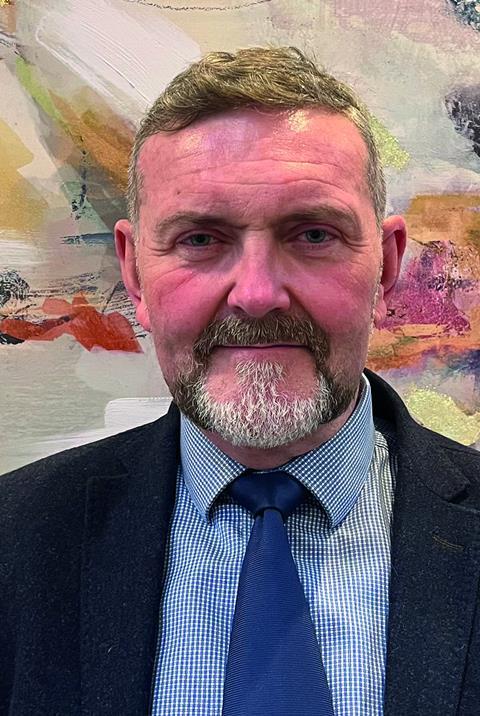Case controller, London
In 1984 I joined Norfolk Constabulary as a special constable while studying history at the University of East Anglia. I wanted a career in law enforcement and was keen to gain real-life/street experience. Highlights were patrolling Norwich city centre on Friday and Saturday nights in Territorial Support Group transit vans.

After graduating, I joined the Royal Hong Kong Police Force as a police inspector. It was a huge change moving from predominantly rural Norfolk to a 24-7 multi-cultural and diverse city of 6 million people living in a condensed and high-rise area. It was a fantastic opportunity to experience a different lifestyle and a new challenge from a policing perspective.
As a young inspector passing out of the police training school, I was given a lot of responsibility, commanding 50 officers. It was a baptism of fire but one that put me in good stead.
In 1990 I returned to the UK, joining HM Customs & Excise as a specialist investigator in a drugs squad. I then took a five-year career break to undertake law courses and the training contract to become a solicitor. After defending for a couple of years, I returned to prosecuting within HMC&E (later Revenue and Customs Prosecutions Office, then the CPS). I prosecuted major multi-handed drug importation conspiracies and EU carousel frauds before deciding it was time for another change. In 2013 I joined the SFO.
I am a case controller at the SFO. I lead a multidisciplinary team of lawyers, accountants and investigators. My role is to set the strategy of the investigation and manage the evidence-gathering. The SFO is distinctive in that we follow the Roskill model, investigating and prosecuting cases. It is a strong model that sees people with different experiences, perspectives and skill sets come together to advance our investigations.
'I relish the chance to work on extremely complex top-tier fraud, bribery and corruption cases. Shaping a case from scratch, withstanding legal challenges, and putting the case before a jury appeals to me'
Once the director opens a new case, the team quickly assesses the evidence, potential suspects, potential offences, and powers to be exercised to gather further evidence. One such power unique to the SFO is enshrined in section 2 of the Criminal Justice Act 1987, which compels individuals to answer questions and/or produce material.
The nature of our cases means we often deal with corporates and white-collar criminals, who can frequently afford top-quality legal teams. However, our teams are highly professional, motivated, persistent and undaunted by legal challenges.
I relish the chance to work on extremely complex top-tier fraud, bribery and corruption cases. Putting together and shaping a case from scratch, withstanding legal challenges, and putting the case before a jury appeals to me. The job satisfaction comes from building a case that brings criminals to book and represents the victims.
There is an international angle to our cases, with interaction between law enforcement and legal colleagues. In the Balli Steel $500m bank fraud case, my team and I worked very closely with the Czech economic crime police as part of an EU joint investigation team. We sent out over 30 mutual legal assistance letters across the globe to acquire evidence.
A principal challenge is the interrogation of huge volumes of seized digital data and stripping out any legal professional privilege. Part of the task is to refine the data into a more reasonable pool of relevant material which can be reviewed for evidence or disclosed to the defence.
We use technology to assist with investigations, including TAR (technology assisted review). We also use block listing and metadata in the disclosure process, as we pioneered in the Balli Steel case, saving time and effort in drafting descriptions.
Last week marked International Fraud Awareness Week. We handle some of the largest fraud cases in the UK, involving multiple victims.






























